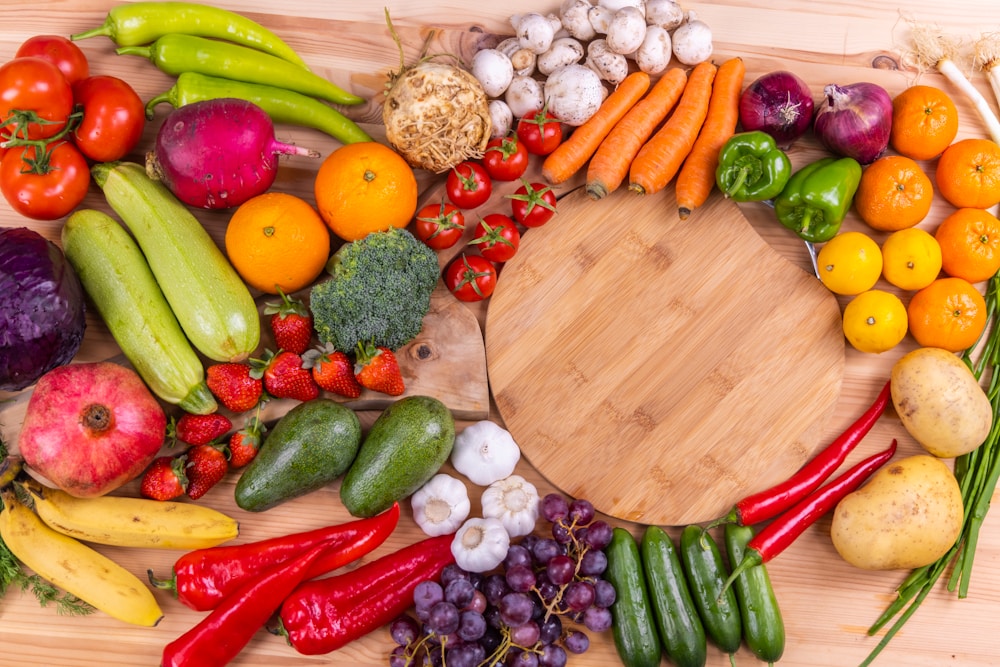Convenience often takes precedence over health, and many of us find ourselves reaching for packaged and processed foods to save time.
While these foods may seem like a convenient option for busy lives, they often come with a hefty price tag in terms of our health.
If your goal is to lose weight naturally and improve your overall well-being, one of the most effective steps you can take is to avoid processed foods.
In this blog post, we’ll explore the reasons why you should avoid processed foods that are detrimental to your weight loss journey, and how opting for whole, unprocessed foods can lead to a healthier, more sustainable lifestyle.

Why You Should Avoid Processed Foods? Here are a few downsides:
Processed foods are those that have been altered from their natural state through various methods such as cooking, freezing, canning, or adding artificial ingredients.
While these foods may be convenient, they pose several problems when it comes to losing weight and maintaining good health:
Nutrient Deficiency
Processing often strips foods of essential nutrients. Vitamins, minerals, and fiber are reduced or lost during the manufacturing process.
This leaves you with calorie-dense but nutrient-poor options, which can lead to overeating to compensate for the lack of vital nutrients.
High in Added Sugars, Fats, and Calories
Processed foods frequently contain high amounts of added sugars and unhealthy fats. These ingredients not only contribute to excessive calorie intake but can also lead to cravings and overconsumption, making weight management a challenging task.
Overeating Promoted
Many processed foods are engineered to be hyper-palatable, making it difficult for individuals to stop eating once they start. This encourages overeating, which can result in unwanted weight gain over time.
The Natural Path to Weight Loss
Losing weight naturally is not about quick fixes or extreme diets—it’s about making sustainable lifestyle choices that promote overall health and well-being. One of the most effective ways to achieve this is by steering clear of processed foods and embracing whole, unprocessed options. By doing so, you provide your body with the essential nutrients it needs while reducing the intake of harmful additives that contribute to weight gain.
Here’s how making this transition can help you achieve your weight loss goals and improve your health in the long run.
1. Nutrient-Rich Choices for Optimal Health

Whole foods, such as fresh fruits, vegetables, lean proteins, and whole grains, are packed with vitamins, minerals, and fiber. Unlike processed foods, which are often stripped of their nutrients, whole foods provide the nourishment your body needs to function optimally.
By incorporating nutrient-dense foods into your diet, you’ll experience higher energy levels, improved digestion, and better overall health. Essential nutrients like fiber and protein help you feel fuller for longer, reducing the likelihood of overeating and unhealthy snacking.
Practical Tip:
Start by filling half of your plate with vegetables and adding lean proteins like chicken, fish, tofu, or legumes. This ensures a well-balanced meal that keeps you satisfied.
2. Lower Caloric Density for Sustainable Weight Loss
One of the main reasons whole foods support weight loss is their lower caloric density. They contain fewer calories per gram than processed foods while being rich in water and fiber. This means you can eat a larger volume of food without consuming excess calories.
For example, a cup of fresh berries has significantly fewer calories than a small handful of candy, yet it provides essential vitamins and antioxidants. Similarly, replacing processed snacks with whole food alternatives can help reduce your overall calorie intake while still allowing you to enjoy delicious, satisfying meals.
Practical Tip:
Choose water-rich foods like cucumbers, tomatoes, oranges, and leafy greens to increase volume in your meals without extra calories.

3. Reduced Sugar and Unhealthy Fat Intake
Processed foods are often loaded with added sugars, unhealthy fats, and artificial preservatives that can lead to weight gain and metabolic imbalances. By focusing on whole foods, you naturally reduce your consumption of these harmful ingredients, helping to stabilize blood sugar levels and prevent cravings.
Many processed foods, including packaged snacks, baked goods, and fast food, contain trans fats and refined sugars that contribute to inflammation and fat storage. Replacing these with whole foods allows your body to burn fat more efficiently and maintain a healthy weight.
Practical Tip:
Read ingredient labels carefully and avoid products with high fructose corn syrup, hydrogenated oils, and artificial sweeteners.
4. Improved Eating Habits and Mindful Eating
Adopting a whole-food diet encourages better eating habits and portion control. Instead of relying on pre-packaged meals, you become more aware of the ingredients in your food and how they impact your health.
Mindful eating, which involves paying attention to hunger and fullness cues, is easier to practice when consuming whole foods. Processed foods are designed to be hyper-palatable, leading to overconsumption, while whole foods promote natural satiety and satisfaction.
Practical Tip:
Eat slowly, chew your food thoroughly, and avoid distractions like TV or smartphones during meals. This helps you recognize when you’re full and prevents overeating.
5. Better Digestion and Gut Health
Whole foods, particularly those high in fiber like fruits, vegetables, and whole grains, support healthy digestion and gut bacteria. A balanced gut microbiome is essential for proper digestion, nutrient absorption, and metabolism regulation.
Processed foods often contain preservatives and additives that disrupt gut health, leading to bloating, constipation, and poor nutrient absorption. By prioritizing whole foods, you create a gut-friendly environment that aids in weight management.
Practical Tip:
Incorporate probiotic-rich foods like yogurt, kefir, kimchi, and sauerkraut to enhance your gut health and improve digestion.
6. Increased Energy Levels and Physical Activity
A diet rich in whole foods provides your body with steady, long-lasting energy. Processed foods with high sugar content cause energy crashes and fatigue, making it harder to stay active.
When you fuel your body with whole, nutrient-dense foods, you’ll feel more energized and motivated to engage in regular physical activity, which is essential for weight loss and overall well-being.
Practical Tip:
Start your day with a protein-rich breakfast like eggs and whole-grain toast or a smoothie with fresh fruits and Greek yogurt to keep your energy levels stable.
7. Long-Term Weight Management and Overall Well-Being
Sustainable weight loss isn’t just about shedding pounds; it’s about creating a lifestyle that supports long-term health. Whole foods not only aid in weight loss but also contribute to improved heart health, better skin, and a reduced risk of chronic diseases such as diabetes and hypertension.
By making whole, unprocessed foods the foundation of your diet, you set yourself up for lifelong success in maintaining a healthy weight and overall well-being.
Practical Tip:
Plan your meals ahead of time and stock your kitchen with healthy, whole-food options to make nutritious choices easier.
The Bottom Line
The journey to natural weight loss begins with the conscious choice to avoid processed foods.
These convenient but nutritionally deficient options can sabotage your efforts to shed excess pounds and achieve a healthier lifestyle.
Instead, prioritize whole, unprocessed foods that provide the nutrients your body craves without the excess calories and unhealthy additives.
By making this switch, you’ll not only work towards your weight loss goals but also enhance your overall well-being, setting the stage for a happier, healthier life.
Disclaimer: The following information is provided solely for informational purposes and should not be considered professional advice or a substitute for professional consultation. While every effort has been made to ensure the accuracy and reliability of the information presented, we make no representations or warranties of any kind, express or implied, regarding the completeness, accuracy, reliability, suitability, or availability of the information provided. Any reliance you place on such details is strictly at your own risk.








